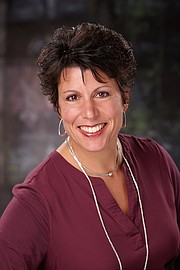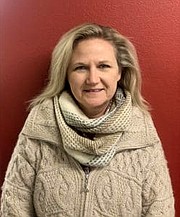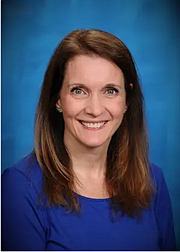School districts could qualify for emergency levies
Before the second Monday of September, Idaho school districts that qualify have the ability to levy emergency funds from taxpayers without voter approval if more students show up than expected and additional funding is needed to support their learning.
The Coeur d'Alene School Board is holding a special meeting at noon Friday to discuss a potential emergency levy.
"We schedule this meeting every year, whether we need it or not," district spokesman Scott Maben said Tuesday. "If there’s an (attendance) increase, the board could consider an emergency levy. We won’t know until Friday morning."
The need is based on average attendance — not enrollment — from the first week of school.
School districts showing the need for these funds must certify with county commissioners and request a school emergency fund levy upon all taxable property in the district.
These levies allow growing school districts to exercise elective taxing authority granted under state law to seek property tax relief at the start of each school year, without voter approval. The funds cover costs of educating additional students for whom districts have not yet received a state appropriation. Emergency levy eligibility is determined by comparing the average daily attendance of the first three days of school with the previous year’s numbers.
Post Falls Superintendent Dena Naccarato said Post Falls generally tries not to use the emergency levy option. Post Falls did not have a meeting scheduled for its board to discuss it further as of Tuesday afternoon.
"It truly is funding districts to pay for new students who weren't accounted for in last year’s numbers," Naccarato said. "We won't have attendance numbers until the end of this week."
The Press reported that in 2019 Post Falls School District approved $615,000 in one-time emergency funds to offset costs when it grew by 144 students. This paid for new teachers, one school bus, six support personnel, textbooks, desks and technology. The district saw a reduced tax rate that year even with the emergency levy.
That same year the Lakeland Joint School District approved an emergency levy for $259,722 to support an increase of 47 students when its average daily attendance in the first three days of school grew from 4,457 students in 2018 to 4,504 in 2019.
In September 2021, Lakeland did not authorize an emergency levy despite overcrowding. Former Superintendent Becky Meyer's recommendation to enact an emergency levy was denied by the school board by a 3-2 vote.
Lakeland School Board Chair Michelle Thompson said the board would only consider an emergency levy at the recommendation of the superintendent. She said her district's chief financial officer, who reviews the average daily attendance the first three days of school and reports that information to the superintendent, is conservative in his approach with the district's budget.
"The school's annual budget is prepared off of assumptions," Thompson said Wednesday. "When the actual growth exceeds the assumed growth on the prepared budget, an emergency exists.
"While I understand the purpose of an emergency fund levy, I don't like it because the determination of taxes is taken out of the taxpayers' hands," Thompson continued. "Taxpayers should have the right to vote on any and all taxation. Last year, our board was asked to implement an emergency fund levy. The board voted not to implement the levy, and instead found the money within our budget to meet the needs of the growth."
Lakeland Superintendent Lisa Arnold said she is not planning to recommend an emergency levy to the board. She said her district had set aside Elementary and Secondary School Emergency Relief dollars to handle any new hires in the fall. She is also looking ahead to the supplemental levy ask coming next spring.
"Our people are being taxed already," Arnold said. "We are doing everything we can to take care of what we can take care of without going to the patrons for taxes."
Maben said Coeur d'Alene hasn't enacted an emergency levy in at least three years. He said this levy has nothing to do with the school plant facilities levy election Coeur d'Alene ran Aug. 30.
"If they recognize attendance is higher than what they budgeted for, they can add more if they need to hire teachers or if they have other needs not anticipated by the start of the year," Maben said, adding that even if significantly more students show up and an emergency levy is justified, the board would still have to vote on whether to move forward with it if district staff recommends it go before the board.
"The board has always liked to have that conversation in public so people understand the provision of that emergency levy," Maben said.
The Coeur d'Alene School Board meets at the Midtown Meeting Center, 1505 N. Fifth St., Coeur d'Alene.







